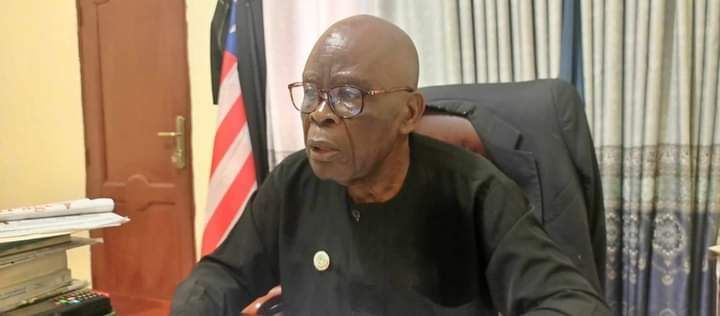To Ratify African Court On Human And People’s Rights Protocols
PHOTO: INCHR Chairman, Cllr. Dempster Brown
The Independent National Commission on Human Rights (INCHR) concluded a two-day stakeholder consultation with civil society organizations and journalists in Grand Bassa County, advocating for the ratification of the Protocol establishing the African Court on Human and Peoples’ Rights.
The consultation, which brought together representatives from various civil society groups and media actors, aimed to deepen public understanding on the establishment of the African Court on Human Rights, and solicit support for Liberia’s ratification of the Protocol. The Protocol, which underpins the African Court, seeks to strengthen human rights protection across the continent through a binding regional judicial mechanism.
INCHR Executive Director Urias Teh Pour emphasized the importance of ratification for Liberia, describing it as a critical step toward reinforcing a pan-African judicial framework capable of holding governments accountable for human rights violations.
“Ratifying this Protocol means that Liberia commits to upholding the highest human rights standards,” said Atty. Pour. “The Court’s decisions are legally binding on member states, and it offers an avenue for redress when national systems fall short.”
Atty. Pour explained that while not all African countries currently allow individuals and NGOs to file cases directly before the Court, ratifying the Protocol and accepting the Court’s jurisdiction for such petitions significantly strengthens the regional justice system.
“The Court complements national judicial mechanisms and helps to fill gaps where those systems may be weak or inaccessible,” he added. “Each case heard contributes to advancing the rule of law and human rights norms across the continent.”
The African Protocol on Human and Peoples’ Rights commonly known as the Banjul Protocol serves as the foundational human rights instrument on the continent. It establishes the African Court to interpret and enforce its provisions, covering a broad range of rights including civil, political, economic, social, cultural, and collective peoples’ rights.
Despite the Court’s legal authority, Atty. Pour acknowledged that compliance with its rulings remains a challenge in some countries. He called on Liberia to lead by example in promoting accountability and justice through regional cooperation.
Also speaking at the event, INCHR Public Information Officer Gideon Scott stressed the vital role of the media in building public support for ratification. He outlined strategies for media engagement, such as using storytelling, community radio, social media, and public service announcements to raise awareness.
“The media has the power to educate the public on why this Protocol matters,” Scott said. “We must encourage citizens to support ratification by contacting their elected officials, signing petitions, or joining advocacy campaigns.”
Participants at the event echoed the need for broader public education and outreach, noting that many Liberians are unaware of the African Court’s existence or its potential to protect their rights.
The event concluded with a renewed call from stakeholders for the Liberian government to ratify the Protocol and accept the competence of the Court to hear cases from individuals and NGOs. Participants agreed that doing so would position Liberia as a leader in regional human rights promotion and protection, and help ensure justice is accessible to all, even when national mechanisms fall short.

